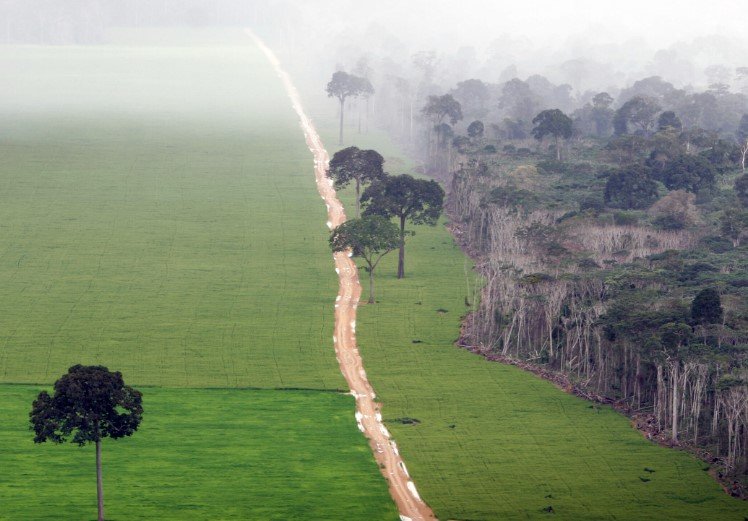Banks around the world have pocketed $26 billion in income over the past decade by financing companies tied to deforestation. This shocking figure comes from a fresh Global Witness investigation released on October 13, 2025, just ahead of the COP30 climate talks in Brazil, highlighting how financial giants profit from activities that harm forests, Indigenous communities, and the planet’s climate.
Key Players and Massive Profits
Financial institutions in the United States led the pack, earning $5.4 billion from 2016 to 2024 through loans, investments, and underwriting for companies accused of deforestation. Major names like Vanguard, JPMorgan Chase, and BlackRock topped the list in the U.S., channeling funds into sectors that drive forest loss.
European Union banks followed closely, pulling in $3.5 billion during the same period. French bank BNP Paribas and Dutch lender Rabobank stood out as the biggest earners in the EU, supporting businesses in high-risk areas like Latin America and Southeast Asia.
In the United Kingdom, banks and asset managers made $1.2 billion. HSBC, along with Aberdeen group and Schroders, were among the top performers, despite growing global pressure to cut ties with deforestation-linked firms.
Beyond these regions, banks in countries like Indonesia, Brazil, and China generated a whopping $15.9 billion. For instance, Bank Central Asia and Bank Rakyat Indonesia, plus the Brazilian Development Bank, ranked high. Recent data shows Chinese lenders have become major players, providing over $23 billion in credit to forest-risk companies from 2018 to 2024 alone.

This income stems from financing 50 companies across six key sectors. Pulp and paper led with 48% of the profits, followed by palm oil at 41%. Other sectors included soya at 4%, beef at 3%, rubber at 3%, and timber at 1%.
How Deforestation Financing Works
Banks provide loans, investments, and underwriting services to companies that clear forests for agriculture and logging. These deals often happen in hotspots like Brazil’s Amazon, Indonesia’s rainforests, and parts of Africa, where land is grabbed for profit.
A recent example ties into this trend. In May 2025, reports accused Santander of providing over $600 million to firms linked to deforestation in South America, fueling beef, palm oil, and soya supply chains. This mirrors broader patterns where banks ignore international pledges, such as those from the 2015 Paris Agreement and the 2021 COP26 deforestation commitment.
Experts point out that such financing not only destroys biodiversity but also displaces Indigenous peoples. In Brazil alone, deforestation rates spiked in 2024, with satellite data showing over 10,000 square kilometers lost, much of it linked to financed agribusiness.
Logical reasoning suggests banks chase short-term gains, ignoring long-term climate risks. As global temperatures rise, events like the 2025 wildfires in Indonesia and floods in Europe show the real costs, yet profits keep flowing.
| Region | Top Banks/Institutions | Income Earned (2016-2024) |
|---|---|---|
| United States | Vanguard, JPMorgan Chase, BlackRock | $5.4 billion |
| European Union | BNP Paribas, Rabobank | $3.5 billion |
| United Kingdom | HSBC, Aberdeen group, Schroders | $1.2 billion |
| Other Countries | Bank Central Asia (Indonesia), Brazilian Development Bank, Bank Rakyat Indonesia | $15.9 billion |
Global Impact on Climate and Communities
Deforestation contributes to about 12% of global greenhouse gas emissions, worsening climate change. The Global Witness report ties this to banks undermining efforts like the Global Biodiversity Framework, agreed upon in 2022, which aims to halt nature loss by 2030.
Indigenous groups suffer the most. In places like Pará state in Brazil, where aerial images from 2021 still show vast cleared areas, communities lose homes and livelihoods. A 2025 study noted that forest-risk financing has led to human rights abuses, including land grabs affecting millions.
Recent events amplify the urgency. At the 2025 G20 summit, leaders discussed stricter regulations on green financing, but progress stalls as banks continue old habits. Meanwhile, consumer boycotts against palm oil products have grown, pressuring companies to change.
Calls for Change and Accountability
Environmental groups demand banks adopt zero-deforestation policies. The report urges governments to enforce rules, like the EU’s upcoming deforestation-free products regulation set for full rollout in 2025.
Some banks have responded. For example, a few U.S. institutions pledged in 2024 to review high-risk loans, but critics say it’s not enough. Logical steps include transparent reporting and shifting funds to sustainable projects, such as reforestation in Asia-Pacific regions.
- Shift investments to green alternatives like renewable energy.
- Support Indigenous-led conservation efforts.
- Demand full disclosure of deforestation-linked deals.
The Road Ahead Before COP30
As COP30 approaches in Brazil next month, this report serves as a wake-up call. It reveals how financial flows contradict climate goals, with total global financing for deforestation-risk firms reaching trillions since 2016, per various analyses.
Experts predict that without swift action, forest loss could accelerate, hitting tipping points like Amazon dieback by 2030. Recent data from 2025 shows a slight dip in some areas due to enforcement, but profits remain a barrier.
Share this story to spread awareness, and drop a comment below on what you think banks should do next. Your voice can help push for real change.








